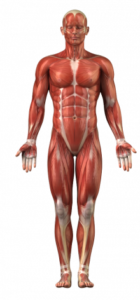 Orthopedists specialize in the diagnosis, treatment, rehabilitation and prevention of injuries to and diseases of the musculoskeletal system - the network of bones, joints, ligaments, tendons, muscles and nerves that gives the body its shape and allows us to move.
Orthopedists specialize in the diagnosis, treatment, rehabilitation and prevention of injuries to and diseases of the musculoskeletal system - the network of bones, joints, ligaments, tendons, muscles and nerves that gives the body its shape and allows us to move.
Many of the problems orthopedists treat involve the joints, places in the body where two or more bones meet. Humans have three different kinds of joints: fibrous (in the skull), cartilaginous (in the spine) and synovial (the neck, shoulders, elbows, wrists, hands, hips, knees, ankles and feet). This last type is what we usually refer to when we say "joint." Ligaments connect bones to each other, and tendons connect muscles and bones.
These parts of our bodies can be damaged from a traumatic injury, disease, congenital disorder or the natural aging process. Commonly treated conditions include arthritis, back pain, carpal tunnel syndrome, bone fractures, sprains and strains, knee and shoulder problems, tendon and ligament tears, osteoporosis, sports injuries, and pediatric conditions such as club foot. Patients may be infants, adolescents, middle-aged or elderly.
The introduction of minimally invasive techniques has meant that many patients can be examined and treated through tiny incisions, minimizing the trauma of "open" surgery and allowing them to enjoy a faster recovery and return to regular activities.
In a healthy joint, the bone ends are covered with a smooth cushion of cartilage and the joint is protected by a fluid-filled capsule called the synovium. Arthritic joints are swollen, or inflamed, usually because the cartilage has been damaged in some way. Patients with arthritis suffer pain, stiffness and swelling in the affected area or areas. Nearly one in three adults suffers from arthritis or other chronic joint symptoms.
There are over 100 different types of arthritic diseases. The most common is osteoarthritis, a degenerative joint disease in which the cartilage protecting the bone ends wears away. Rheumatoid arthritis is an autoimmune disorder in which the body's own immune system attacks the joint lining.
A diagnosis of arthritis is made after an evaluation of symptoms, a physical examination and one or more diagnostic imaging tests. Unfortunately, most types of arthritis are currently incurable - but today's treatment options can be very effective. Treatment typically involves a combination of anti-inflammatory medication and devices to relieve stress on the joint (canes, crutches or splints). Regular exercise, weight loss for overweight patients, and cortisone injections may also be helpful. In severe cases, orthopedic surgery such as joint replacement may be the only way to improve or restore function and relieve pain.
Osteoporosis is a disease characterized by increasing bone loss which can lead to fractures, height loss and a hump-backed appearance. One in two women, and one in five men, over the age of 65 will suffer at least one bone fracture due to osteoporosis.
A diagnosis of osteoporosis is made after a complete medical history, physical examination and laboratory tests, including X-rays and bone densitometry. Other possible causes of bone loss must be ruled out as well. Lost bone cannot be replaced, but the treatment team will work with you to prevent further weakening. The treatment plan may include exercise, diet changes, hormone therapy with estrogen (ERT) or anti-estrogens (SERMs), or bone-preserving medications such as Calcitonin or Alendronate.
Sometimes the best way to relieve pain and restore function to a joint is to replace all or part of it with a mechanical prosthesis. Prostheses are intended to relieve pain associated with arthritis, other chronic conditions, or traumatic injury. The most commonly replaced joints are the hip, knee, shoulder and wrist.
Occasionally, an implanted prosthesis does not function as well as it was intended to. In this case a revision procedure may be performed to adjust or replace the mechanism.
To learn more about our Orthopedic Services, please contact us at 805-495-3687 today to schedule an appointment.




